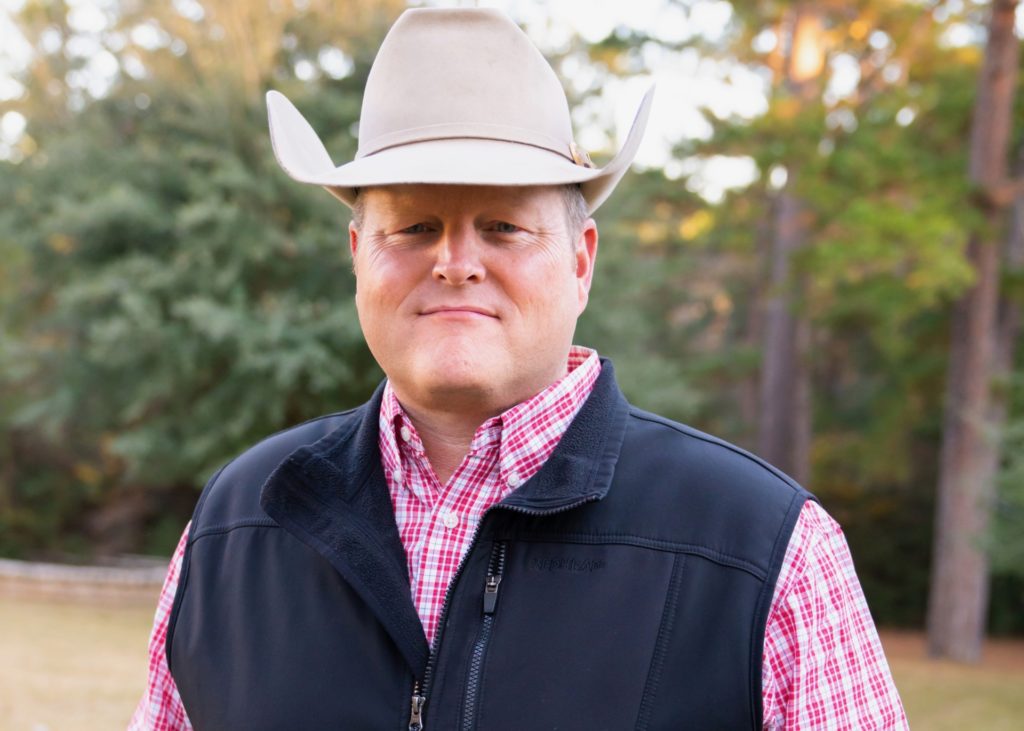Texas A&M AgriLife appoints new director of Center for Grazinglands and Ranch Management
Research and outreach to focus on producer-identified challenges
As land management challenges evolve, so too must the tools and critical resources Texas A&M AgriLife provides land managers and producers.

With more than two decades of nationally recognized rangeland conservation and outreach experience, Jeff Goodwin, Ph.D., has been tasked with facilitating this mission as director of the Center for Grazinglands and Ranch Management.
The center is housed within the Department of Rangeland, Wildlife and Fisheries Management in the Texas A&M College of Agriculture and Life Sciences.
With support from Texas A&M AgriLife Research, the center is part of a Texas A&M University System-wide effort to safeguard the ecologic and economic resiliency of grazing land resources and ranching operations.
Roel Lopez, Ph.D., Department of Rangeland, Wildlife and Fisheries Management head, said Goodwin’s appointment is part of a deliberate revitalization of the center and the Center for Natural Resources Information Technology to better serve producers across Texas and beyond.
“Producers are continually challenged by a changing environment, as well as variable markets,” Goodwin said. “Having an integrated plan to most appropriately mitigate risk while balancing the ecologic and economic goals of ranching enterprises is critical as we move forward.”
Goodwin said the center will provide producers the tools and information necessary to make more informed ranch management decisions through applied research, outreach, technical assistance and industry engagement.
Director brings an established reputation and ranch-scale opportunities
Goodwin, who earned a doctoral degree in rangeland and wildlife science from Texas A&M University-Kingsville, said he is focused on providing producers solutions to real-world problems.
He previously worked with the U.S. Department of Agriculture’s Natural Resources Conservation Service throughout Texas, eventually holding the position of state range specialist. In 2014, he received the agency’s national Rangeland Conservationist of the Year Award.
Following his tenure with the agency, Goodwin joined the Noble Research Institute, located in Ardmore, Oklahoma, as conservation stewardship lead and senior rangeland and pasture consultant.
In addition to developing many of the institute’s land stewardship-focused programs across Texas, Oklahoma and Kansas, Goodwin served as project lead in developing the McDonald’s Corporation Flagship Farmer Program in the U.S. This global program recognizes producers within the McDonald’s supply chain who implement sustainable land management practices and enables farmer-to-farmer resource sharing.
While at Noble in 2021, Goodwin served as co-principal investigator and co-director of a $19.2 million grant through the Foundation for Food and Agriculture Research focused on the metrics, management and monitoring of pasture and grazing land soil health across 60 ranches in Texas, Oklahoma, Michigan and Wyoming.
With Goodwin’s continued leadership of the grant, AgriLife Research joins this diverse research team. The collaborative research opportunities will help guide the future vision for the center.
“I want the center to be a facilitating agent,” Goodwin said. “We will work to provide a framework to bring together the breadth of expertise within the Texas A&M system to address current, on-the-ground issues facing producers, as well as industry-level challenges that impact grazing lands and ranch enterprises in Texas and beyond.”
Texas A&M students will also benefit from and enable the center’s ongoing efforts.
Currently, the center and Department of Rangeland, Wildlife and Fisheries Management are in the initial stages of implementing broad-scale case studies of grazing strategies and their associated ecologic and economic outcomes at Texas A&M’s 2,726-acre La Copita Research and Demonstration Ranch located in Jim Wells County.
Goodwin said the property provides a unique foundation for the research because it has not been actively grazed in a decade. In May, two department graduate students will begin baseline assessments of soil, vegetation and wildlife.
“This is an exciting time for both students and faculty across the College of Agriculture and Life Sciences,” Lopez said. “Jeff has shown great vision and made significant strides in revitalizing the center to reinforce our commitment to fulfilling the land-grant mission of Texas A&M.”
For more information on Center for Grazinglands and Ranch Management and current initiatives, contact Goodwin at [email protected] or (979) 845-5000.


